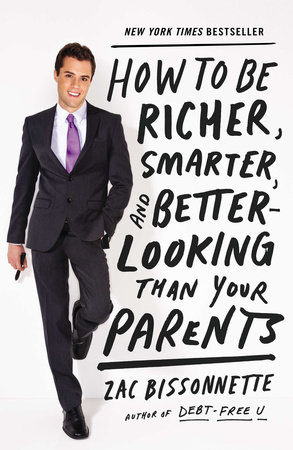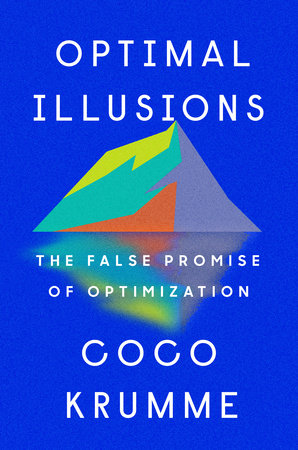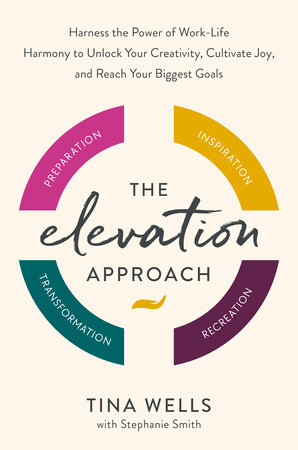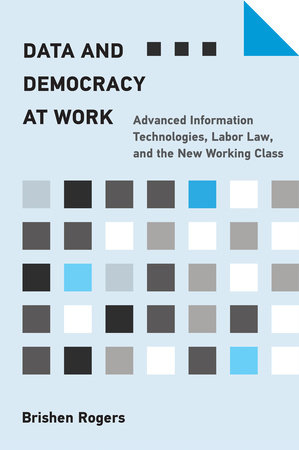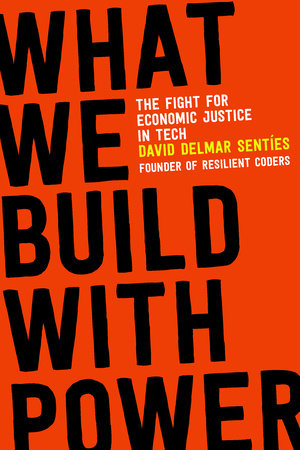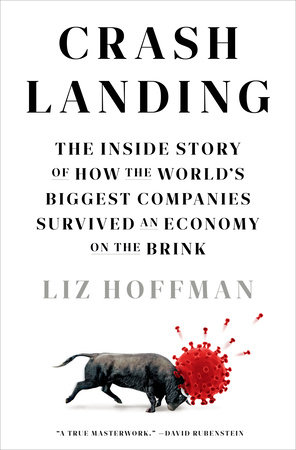Quick Summary
One Sentence Summary
“How to Be Richer, Smarter, and Better-Looking Than Your Parents” by Zac Bissonnette offers practical, actionable advice for young adults to achieve financial stability, enhance their knowledge, and improve their overall wellbeing.
Big Idea
The book emphasizes the importance of financial literacy, smart decision-making, and personal development for young adults, challenging conventional wisdom and encouraging readers to pave their own paths to success.
Five Key Ideas
- Financial Independence: Bissonnette guides readers on managing debt, especially student loans, and advocates for living within one’s means to build wealth.
- Investing in Education: The importance of making informed choices about education, questioning the value of expensive colleges, and considering alternatives.
- Career Development: Practical tips on navigating the job market, the value of networking, and the importance of continuous learning.
- Personal Wellbeing: Advice on maintaining physical and mental health, which Bissonnette links to overall success.
- Challenging Norms: Encourages questioning societal pressures and norms, especially regarding spending and lifestyle choices.
Actionable Advice
- Budget Wisely: Create and stick to a budget that prioritizes saving and wise spending.
- Educate Yourself: Continuously seek knowledge, whether through formal education or self-learning.
- Network Effectively: Cultivate meaningful professional relationships.
- Invest in Yourself: Prioritize your health and wellbeing, as it’s crucial for long-term success.
- Think Critically: Challenge societal expectations and make decisions based on your values and goals.
About the Author
Zac Bissonnette is an author, journalist, and commentator known for his expertise in personal finance and his practical, no-nonsense approach to financial advice.
Read Next
- “The Total Money Makeover” by Dave Ramsey, for further insights on debt management and financial freedom.
- “Rich Dad Poor Dad” by Robert Kiyosaki, for alternative perspectives on wealth and investing.
- “Atomic Habits” by James Clear, for guidance on building habits that can lead to success and personal growth.
In Depth
Financial Independence
Financial independence is a cornerstone concept in Zac Bissonnette’s book. It’s about having control over your finances instead of letting them control you. Bissonnette advocates for a proactive approach to money, emphasizing the need to manage debt, save diligently, and spend wisely.
One of the most pressing issues he addresses is student debt. He cautions against the allure of prestigious, expensive colleges, arguing that the financial strain isn’t always justified by the potential return on investment. Instead, he advises considering affordable education options that won’t saddle you with crippling debt.
Bissonnette uses the example of a student, Sarah, who turned down an Ivy League university for a less expensive state college. Despite peer pressure and societal expectations, Sarah graduated with minimal debt. This decision allowed her to pursue her career without the burden of large monthly loan payments. She had the financial freedom to take risks and explore opportunities that her peers, bogged down by debt, couldn’t.
The book also tackles the concept of living within your means. Bissonnette doesn’t preach frugality for its own sake but advocates for a sensible approach to spending. It’s not about cutting out all luxuries; it’s about understanding the difference between wants and needs. He encourages readers to scrutinize their spending habits and to differentiate between temporary pleasures and long-term value.
A pivotal aspect of financial independence, according to Bissonnette, is understanding the power of saving. He argues that even small amounts, when saved consistently, can grow into significant sums over time. The magic of compound interest is something he emphasizes, demonstrating how saving early and regularly can lead to substantial financial growth.
“Remember, a dollar saved today is not just a dollar; it’s a dollar plus all the interest it will earn between now and retirement.” – Zac Bissonnette
Bissonnette doesn’t just leave readers with the why of financial independence; he dives into the how. He provides practical tips for budgeting, such as tracking expenses, setting financial goals, and prioritizing savings. He emphasizes the importance of having an emergency fund, which acts as a buffer against unforeseen financial shocks.
The concept of debt management is also a significant focus. Bissonnette stresses the importance of paying off high-interest debt as quickly as possible. He explains how carrying such debt can be a substantial barrier to financial growth and offers strategies for tackling it effectively.
In essence, financial independence, as portrayed in Bissonnette’s book, is about making informed and deliberate choices with your money. It’s about understanding the long-term implications of financial decisions and taking steps today that will lead to a more secure and flexible financial future. By managing debt wisely, living within means, saving diligently, and understanding the value of money, young adults can pave their way toward a financially independent life.
Investing in Education
Education is a powerful tool, but it’s not a one-size-fits-all solution. In “How to Be Richer, Smarter, and Better-Looking Than Your Parents,” Zac Bissonnette urges readers to rethink the conventional approach to education. He emphasizes making informed and financially sensible choices.
Bissonnette questions the value of expensive colleges. He argues that the prestige of a school doesn’t always guarantee success. Instead, he advises considering the return on investment. It’s crucial to weigh the potential benefits against the costs.
He provides the example of a graduate, Tom, who chose a high-ranking, expensive university. Tom believed the name would open doors for him. However, after graduation, he struggled under the weight of his student loans. He realized too late that his costly education didn’t give him a significant edge in the job market. In contrast, his friend, who attended a less prestigious but more affordable school, was financially better off and equally successful in her career.
“It’s not where you go to school but how you go to school that matters.” – Zac Bissonnette
Bissonnette advises exploring alternatives to traditional four-year colleges. He suggests community colleges, trade schools, and online courses as viable options. These alternatives can provide valuable skills and knowledge without the hefty price tag of some universities.
The book also emphasizes the importance of actively engaging in one’s education. It’s not just about attending classes; it’s about seeking knowledge, asking questions, and applying what you learn. Bissonnette encourages readers to take charge of their learning experiences, whether in a classroom or through self-directed study.
Networking and building relationships are also highlighted as key components of education. Bissonnette suggests that who you know can be just as important as what you know. He encourages students to build connections with peers, professors, and industry professionals.
Moreover, Bissonnette touches on the concept of lifelong learning. Education doesn’t stop at graduation. The job market is constantly evolving, and staying informed and adaptable is crucial. He recommends continuous learning and skill development to stay relevant in your field.
In summary, investing in education, as per Bissonnette’s guidance, is about making strategic choices that balance cost and potential benefits. It’s about considering alternatives and ensuring that your educational decisions align with your financial and career goals. It’s also about taking an active role in your learning journey and understanding that education is a lifelong process.
Career Development
Zac Bissonnette in his book, “How to Be Richer, Smarter, and Better-Looking Than Your Parents,” offers invaluable advice on career development. He stresses the importance of strategic planning and continuous growth in building a successful career.
A central theme is the art of navigating the job market. Bissonnette emphasizes that landing a job isn’t just about what you know; it’s also about how you present yourself and connect with others. He underscores the value of internships and volunteer work in gaining practical experience and making yourself more marketable.
Bissonnette provides an example of a young professional, Lisa, who utilized internships to gain real-world experience. Despite being offered unpaid positions, Lisa saw the long-term value. She gained skills, built her resume, and made connections that eventually led to a full-time job offer. Her story illustrates the importance of looking beyond immediate monetary gain and focusing on long-term career growth.
“Every job is a stepping stone to your next job.” – Zac Bissonnette
Networking is another key component of career development highlighted in the book. Bissonnette encourages building meaningful professional relationships. He advises attending industry events, joining professional groups, and maintaining connections with colleagues and mentors. Networking, he argues, can open doors to opportunities that might otherwise remain closed.
Continuous learning is a recurring theme. In today’s fast-paced world, staying up-to-date with industry trends and constantly upgrading skills is crucial. Bissonnette suggests taking courses, attending workshops, and reading extensively in your field. He stresses that being a lifelong learner can give you a competitive edge.
The book also tackles the issue of career setbacks. Bissonnette advises approaching failures and rejections as learning opportunities. He encourages resilience and adaptability, reminding readers that career paths are rarely linear. Overcoming challenges, he asserts, can lead to growth and new opportunities.
In essence, career development, as depicted in Bissonnette’s book, involves a combination of strategic planning, continuous learning, and effective networking. It’s about gaining practical experience, building relationships, and staying adaptable in an ever-changing job market.
Personal Wellbeing
Zac Bissonnette’s approach to personal wellbeing in his book, “How to Be Richer, Smarter, and Better-Looking Than Your Parents,” is holistic. He emphasizes that success isn’t just about financial gains or career advancements; it’s also about maintaining good physical and mental health.
He insists on the interconnection between health and productivity. Good health, Bissonnette argues, is an investment that pays dividends in all areas of life. He talks about the importance of regular exercise, balanced nutrition, and sufficient rest. These aren’t luxuries but necessities for a successful life.
A striking example in the book is of a young entrepreneur, Emily. Despite her business success, her health suffered due to neglect. She faced burnout and had to take a break. This setback made her realize the importance of health. She started exercising, eating better, and managing stress. These changes not only improved her health but also her business performance.
“Taking care of your body and mind isn’t just about looking good. It’s about being able to enjoy your success and actually have the energy to pursue your goals.” – Zac Bissonnette
Bissonnette also discusses mental wellbeing. He talks about the impact of stress and anxiety on decision-making and creativity. He suggests practical ways to manage stress, such as meditation, hobbies, and seeking support when needed.
Another aspect of personal wellbeing he touches on is work-life balance. Bissonnette warns against the glorification of overworking. He encourages setting boundaries, taking breaks, and ensuring time for personal life and relationships.
He also highlights the importance of self-awareness and personal development. Understanding oneself, one’s values, and goals is crucial for overall wellbeing. He suggests introspection and continuous self-improvement to not only be successful but also content and fulfilled.
In summary, personal wellbeing in Bissonnette’s perspective is about maintaining a healthy balance between work and life. It’s about taking care of physical and mental health, setting boundaries, and understanding oneself. These are not only essential for personal happiness but also for sustained success and productivity.
Challenging Norms
In “How to Be Richer, Smarter, and Better-Looking Than Your Parents,” Zac Bissonnette urges readers to question societal pressures and norms, especially regarding spending and lifestyle choices. He advocates for thinking critically and making decisions based on personal values and goals, rather than blindly following societal expectations.
Bissonnette discusses the pressure to conform to certain lifestyle standards, such as owning a fancy car or living in a prestigious neighborhood. He emphasizes that these status symbols often lead to unnecessary financial strain. He advises focusing on what truly matters for personal happiness and long-term goals.
One example from the book is of a young couple, Mark and Anna. They bought an expensive house in a high-end neighborhood because that’s what was expected of them. However, the mortgage payments and maintenance costs strained their finances and relationship. They realized they were happier and financially healthier in a smaller, more affordable home. This decision went against societal norms but aligned with their personal values and goals.
“Don’t let society dictate your choices. Let your own values and goals be your guide.” – Zac Bissonnette
Bissonnette also tackles the concept of “keeping up with the Joneses.” He points out the futility of comparing oneself with others and trying to match their lifestyle. He stresses that this often leads to debt and unhappiness. Instead, he encourages finding satisfaction in personal achievements and living within one’s means.
The book also discusses the importance of questioning conventional career paths. Bissonnette suggests that the traditional 9-to-5 job isn’t the only way to success. He encourages exploring entrepreneurship, freelancing, or other unconventional career routes if they align with personal interests and goals.
Another important aspect is the reevaluation of education. Bissonnette challenges the notion that a prestigious college degree is the only path to success. He encourages considering alternatives that may be more aligned with personal aspirations and financial realities.
In essence, challenging norms, as depicted by Bissonnette, is about making deliberate, independent choices. It’s about not letting societal expectations dictate personal and financial decisions. It’s about understanding what brings true happiness and fulfillment and pursuing that, even if it goes against the grain.
Actionable Advice
- Live Within Your Means: Spend less than you earn. Differentiate between wants and needs.
- Manage Debt Wisely: Pay off high-interest debt quickly. Avoid unnecessary loans.
- Save Regularly: Start a savings habit, even with small amounts. Aim for an emergency fund.
- Invest in Education: Choose affordable education options. Focus on return on investment.
- Gain Practical Experience: Pursue internships or volunteer work. Build your resume.
- Network Effectively: Attend industry events, join professional groups, and maintain connections.
- Stay Adaptable: Be open to learning new skills. Keep up with industry trends.
- Maintain Work-Life Balance: Set boundaries, take breaks, and prioritize personal life.
- Prioritize Health: Exercise regularly, eat healthily, and manage stress.
- Question Norms: Make decisions based on your values, not societal pressures. Challenge conventional paths.
- Be a Lifelong Learner: Continuously seek knowledge and self-improvement. Stay curious.
- Focus on Personal Goals: Align your actions with your long-term personal and financial goals.
About the Author
Zac Bissonnette is a finance and investment writer renowned for his practical approach to personal finance. Born in 1987 in the United States, he carved a niche in demystifying financial complexities for young adults. Bissonnette authored several influential books, including “Debt-Free U” and “The Great Beanie Baby Bubble.” His work is distinguished by its focus on smart financial decisions and skepticism towards traditional financial advice. Bissonnette believes in empowering individuals through knowledge, advocating for informed choices in education, career, and investments. He frequently challenges societal norms, urging people to question the status quo and align their financial choices with personal values and goals. Bissonnette’s work reflects a blend of personal experience and in-depth research, making him a trusted voice in the world of personal finance. His commitment to providing actionable advice has made him a sought-after commentator and writer in the financial landscape.
Read These Next
You might like these similar books
- “The Total Money Makeover” by Dave Ramsey
- “Rich Dad Poor Dad” by Robert Kiyosaki
- “I Will Teach You to Be Rich” by Ramit Sethi
- “Your Money or Your Life” by Vicki Robin and Joe Dominguez
- “The Automatic Millionaire” by David Bach
FAQ
Q: What is the main focus of Zac Bissonnette’s book?
A: The book focuses on personal finance, career development, and personal wellbeing for young adults.
Q: Is this book suitable for someone with no financial background?
A: Yes, it’s written in simple language, making it accessible to those without a financial background.
Q: Does the book provide practical advice or is it more theoretical?
A: It provides practical, actionable advice that readers can apply to their daily lives.
Q: Is there advice on managing debt in the book?
A: Yes, the book offers strategies for managing and paying off debt effectively.
Q: Can this book help with career planning?
A: Absolutely, it covers career development, including networking, gaining experience, and more.
Q: Are there any tips on achieving work-life balance in the book?
A: Yes, the book discusses the importance of work-life balance and offers tips to achieve it.
Q: Does Zac Bissonnette touch upon the mental aspects of financial management?
A: Yes, he discusses the mental and emotional aspects of dealing with money and making financial decisions.

